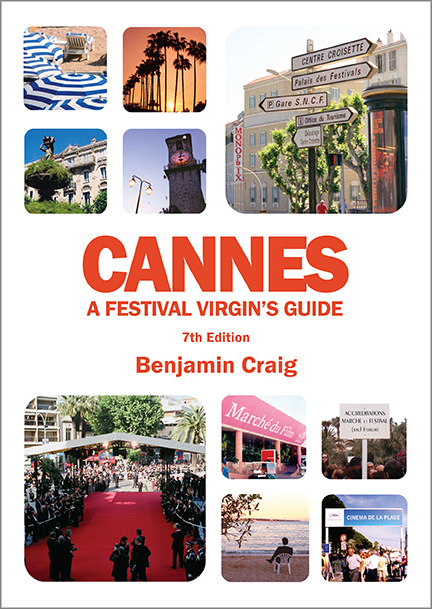
History of the Cannes Film Festival
Part 2: And, Act... Wait, What?
< Back to Part 1: Messieurs, j'ai une idée ...
The inaugural Festival International du Film was slated to kick-off in September 1939 - that month chosen by shrewd city officials who were quick to realise that the festival could be used to extend the summer tourist season by a couple of weeks. However, the fledgling event only managed it's opening night before being closed down as a result of the outbreak of World War II. Things remained in hiatus during the war, but the festival re-emerged for a second attempt on 20 September 1946 under the aegis of the French ministries of foreign affairs and education.
As the city had yet to make good on its promise of a dedicated venue, the first festival-proper took place in the old winter casino. The 81-year-old Louis Lumière took the reins as the festival's inaugural jury president, casting a critical eye over a strong line-up of work from leading international directors of the time. Films included Billy Wilder's "Lost Weekend, David Lean's "Brief Encounter", Roberto Rossellini's "Rome Open City", George Cukor's "Gaslight", Walt Disney's "Make Mine Music", Alfred Hitchcock's "Notorious", and Jean Cocteau's "Beauty and the Beast". Works from luminaries such as Charles Laughton, Howard Hawks, and Cecil B. De Mille were also screened out of competition.
At curtain-fall in 1946, the first festival was regarded as a success by all and sundry. For 1947, the event was moved under the wing of the newly-formed Centre National de la Cinématographie (CNC), a government body charged with supporting and promoting the cinematic arts and preserving France's screen history. As well as taking on all administrative functions, the CNC also became responsible for co-ordinating film submissions and selection. Indeed, in the early days, films were actually nominated for submission by the governments of their respective countries, rather than the festival itself, and the number of berths available to any given country was proportionate to the volume of its cinematic output. This meant that, back then, Cannes was more of a film forum than a truly competitive event, with the CNC trying very hard to ensure that every film screened went home with some kind of award. So much for no politics.
The 1947 festival had been a success by most measures, but things faltered in 1948 with budget problems seeing the event dark for a second time. Financial woes also prevented the 1950 edition from going ahead, but in between, the 1949 festival managed to secure an impressive line-up. Highlights included Fred Zinnemann's "Act of Violence", Michelangelo Antonioni's "L'Amorosa Menzogna", Joseoph L. Mankiewicz's "House of Strangers", David Lean's "The Passionate Friends", and Carol Reed's "The Third Man" (the top prize-winner for that year). 1949 also saw the City of Cannes finally make good on its promise of a dedicated venue with the opening of the Palais Croisette (on the site of what is now the JW Marriott hotel).
Now We're Cuisson au Gaz
Into the early 1950s the festival experienced significant growth in both scope and renown. But many observers begun to note that Cannes was losing out on high-profile world premieres to rival events such as Venice and the newly-minted Berlin International Film Festival, both of which took place earlier in the year. After some head-scratching, it was agreed that Cannes should be brought forward to April. This move also garnered wide support from the local tourist industry, which had already begun questioning the wisdom of holding such a large event at the end of the season, when things were naturally winding down.
As the 1950s marched on, the festival found its footing, going from strength to strength. Between 1951 and 1953 over 105 feature films were presented in competition, including George Stevens' "A Place in the Sun", Alfred Hitchcock's "I Confess", Orson Welles' screen adaptation of "Othello", John Ford's "The Sun Shines Bright", Raj Kapoor's "Awara", and a back-to-back triple play from Luis Buñel ("Subida al Cielo", "Los Olividados", and "El"). And in 1954, two things happened which would change the image of Cannes forever.
 A full rundown on the 2026 Cannes Film Festival, is available in the book, Cannes - A Festival Virgin's Guide (7th Edition).
A full rundown on the 2026 Cannes Film Festival, is available in the book, Cannes - A Festival Virgin's Guide (7th Edition). Find Out More >
Continue reading... Part 3: An Icon is Born >